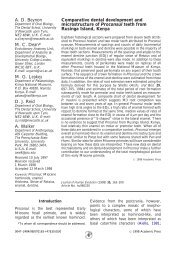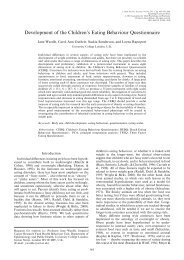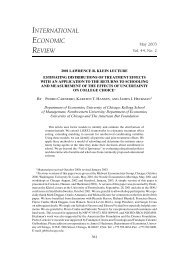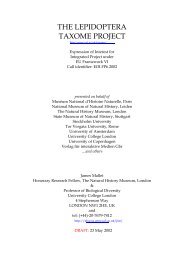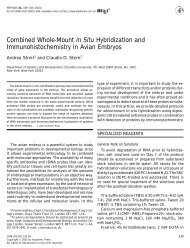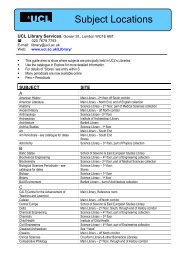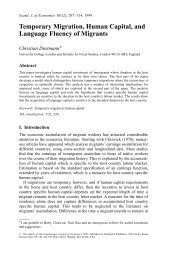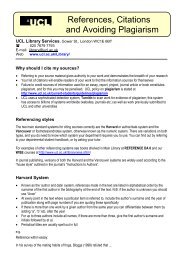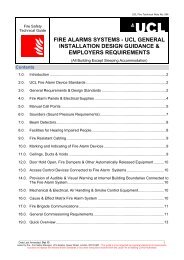The Ambitions of Contract as Promise Thirty Years On ... - UCL
The Ambitions of Contract as Promise Thirty Years On ... - UCL
The Ambitions of Contract as Promise Thirty Years On ... - UCL
You also want an ePaper? Increase the reach of your titles
YUMPU automatically turns print PDFs into web optimized ePapers that Google loves.
<strong>Ambitions</strong> <strong>of</strong> <strong>Contract</strong> As <strong>Promise</strong> 24 August 2012 discussion draft: do not quote or reproduce without permission<br />
defaults. 59 <strong>The</strong>ir theory depends on the will <strong>of</strong> the parties in that they provide<br />
parties with a choice <strong>of</strong> interpretive strategy; under their system, if you don’t<br />
want a formalist contract, don’t have one. 60 Or, you can have <strong>as</strong> much <strong>of</strong> one <strong>as</strong><br />
you want. In contr<strong>as</strong>t, the opposite <strong>of</strong> formalism or textualism—let’s call it<br />
purposivism 61 —leaves the parties no such choice <strong>of</strong> interpretivist strategies. In<br />
short, if you don’t want a formalist contract, don’t have one. Or have <strong>as</strong> much <strong>of</strong><br />
one <strong>as</strong> you want. For Schwartz & Scott, the only role that a predilection for<br />
efficiency plays is to stipulate formalism <strong>as</strong> a default. But once you see the<br />
choice between purposivism and formalism <strong>as</strong> a choice, one or the other h<strong>as</strong> to<br />
be the default when the parties don’t choose, and Schwartz and Scott make a<br />
pretty good argument that, at le<strong>as</strong>t between merchants, formalism is what most<br />
would choose—it is a majoritarian default rule. 62<br />
But there is another problem <strong>of</strong> an infinite regress, one we have<br />
encountered in respect to remedies, but in the problem <strong>of</strong> interpretation it goes<br />
deeper: what if one party insists that from the outset—ex ante—he had rejected<br />
formalism? How is that dispute to be adjudicated? (<strong>The</strong>re is an analogous crux<br />
59 See Schwartz & Scott, Redux, supra note 50, at 946–47.<br />
60 Id. at 947.<br />
61 This is a bit <strong>of</strong> naughtiness on my part. I mean to draw an analogy between textualists in statutory interpretation<br />
and their counterparties who are called purposivists. See, e.g., John F. Manning, Textualism and the Equity <strong>of</strong> the<br />
Statute, 101 COLUM. L. REV. 1, 3–5 (2001).<br />
62 See Schwartz & Scott, <strong>Contract</strong> <strong>The</strong>ory, supra note 50, at 568–69.<br />
30




